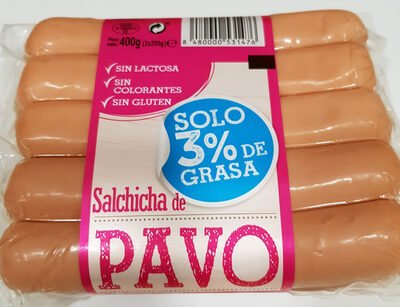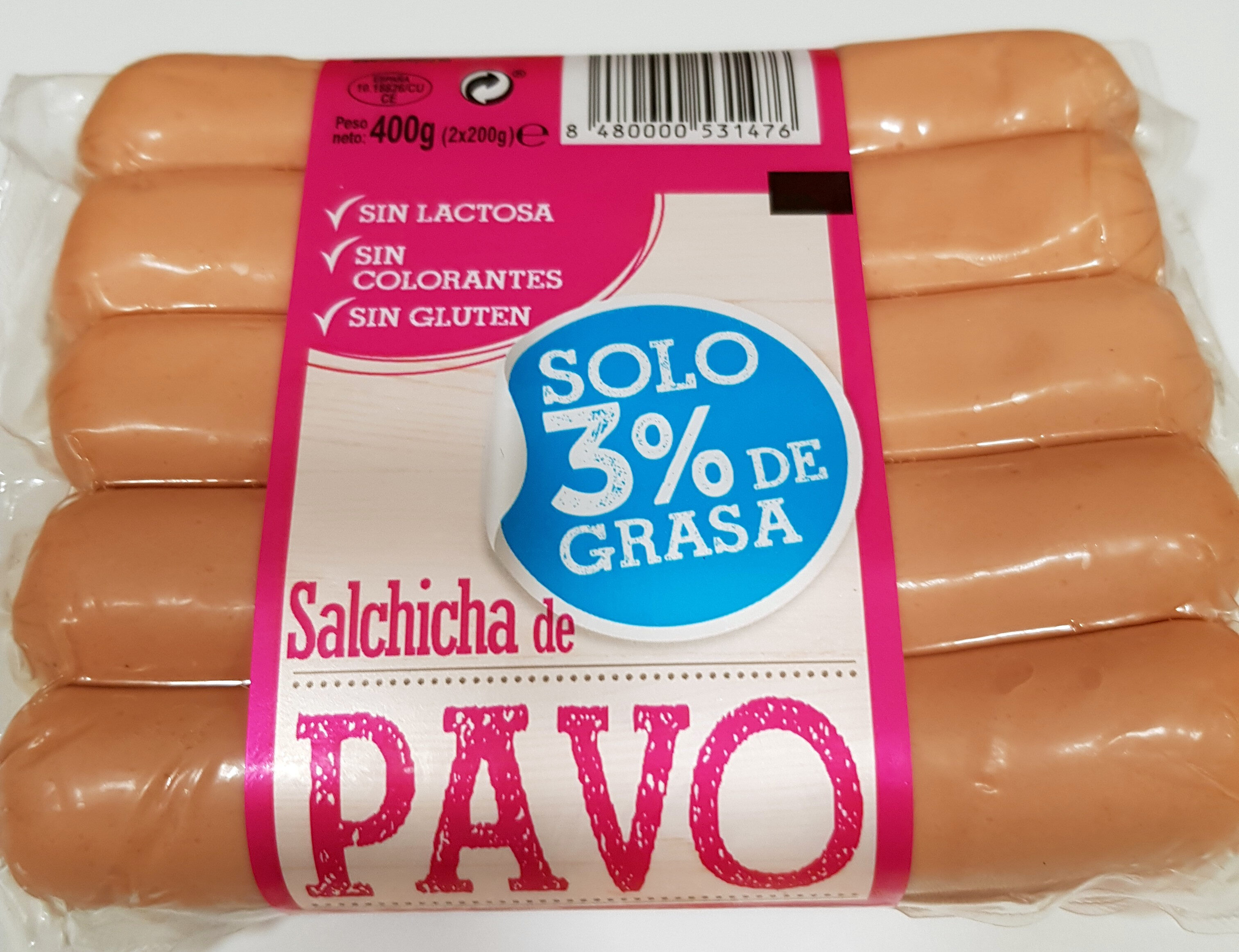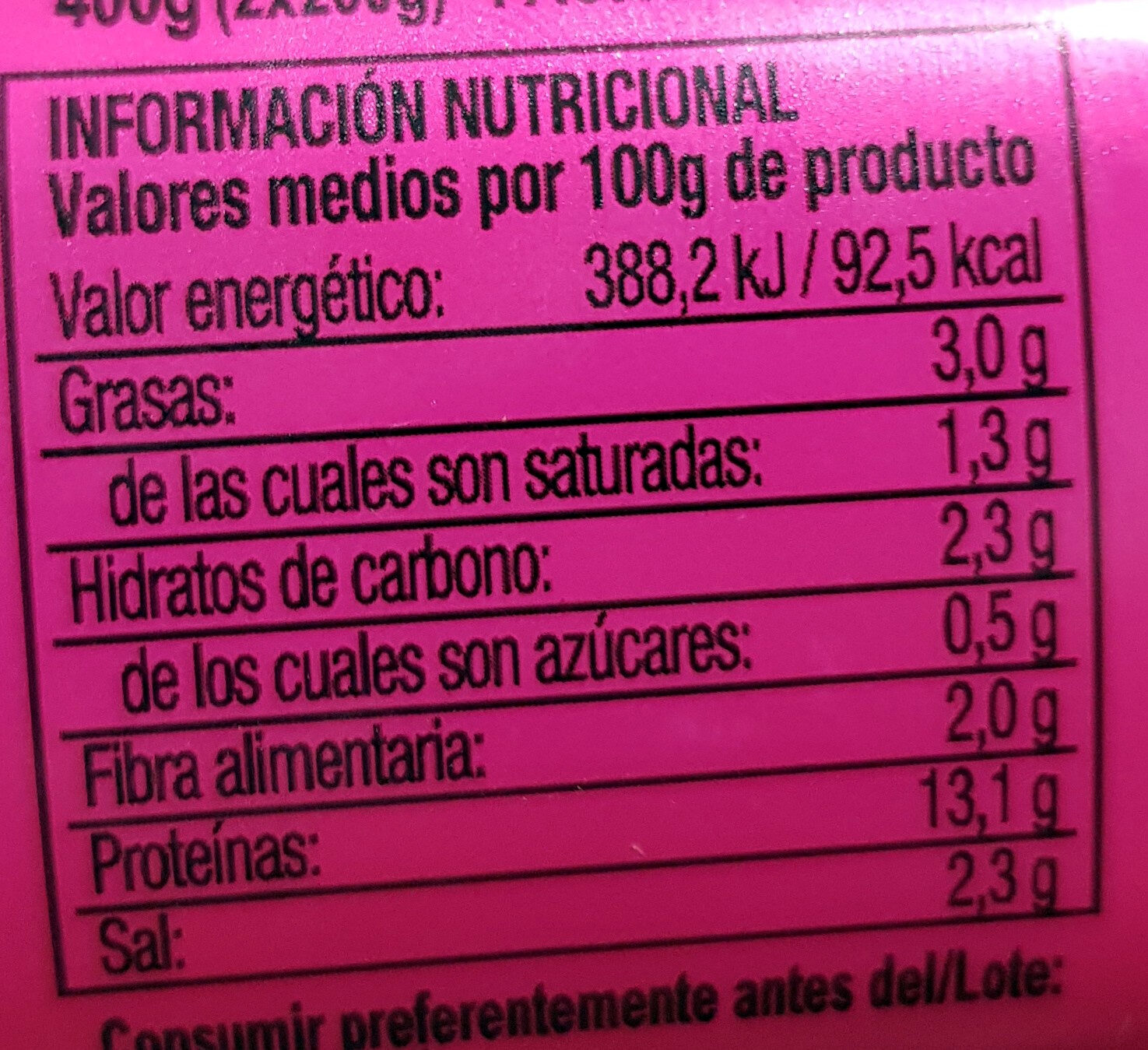Salchichas de pavo 3% grasa - Hacendado - 400g
This product page is not complete. You can help to complete it by editing it and adding more data from the photos we have, or by taking more photos using the app for Android or iPhone/iPad. Thank you!
×
Barcode: 8480000531476 (EAN / EAN-13)
Common name: Salchichas cocidas de pavo
Quantity: 400g
Packaging: es:Green dot
Brands: Hacendado
Categories: Meats and their products, Meat preparations, Meats, Prepared meats, Poultries, Sausages, Turkey and its products, Turkeys, Poultry sausages, Turkey preparations, Turkey sausages
Labels, certifications, awards: No gluten, No colorings, No lactose
Manufacturing or processing places: Spain
Traceability code: ES 10.18826/CU CE
Stores: Mercadona
Countries where sold: Spain
Matching with your preferences
Environment
Carbon footprint
Packaging
Transportation
Report a problem
Data sources
Product added on by elcoco
Last edit of product page on by ecoscore-impact-estimator.
Product page also edited by alexrios, alia, elcoco.d3a31f8aa54cd95d5ed60d2217f1bc5f, inf, moon-rabbit, musarana, openfoodfacts-contributors, roboto-app, teolemon.











